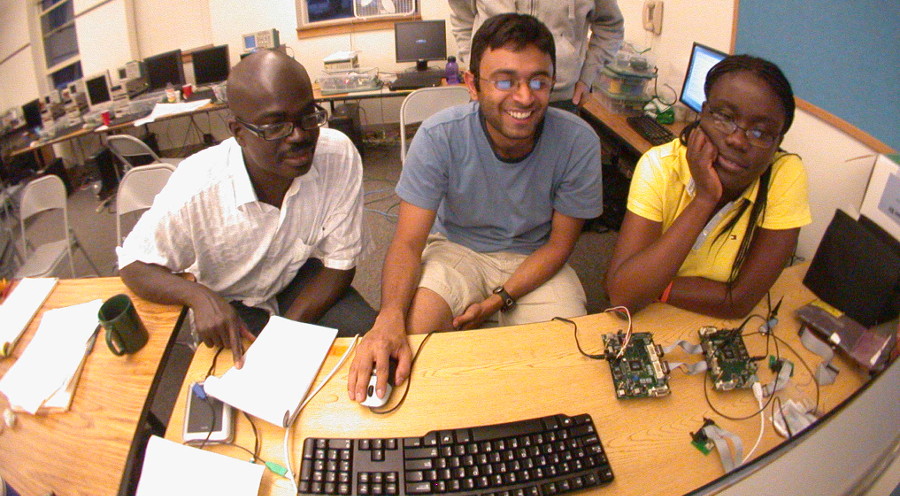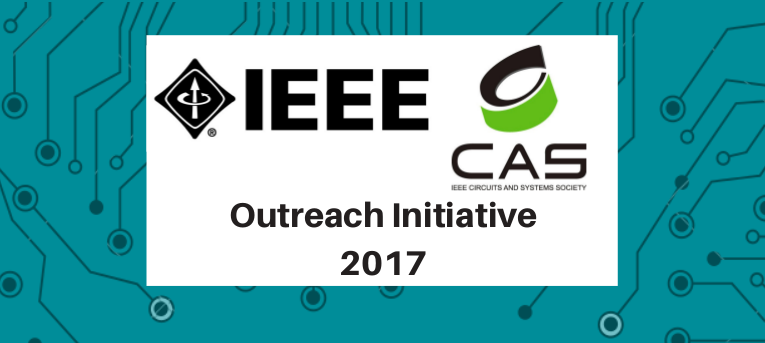Navigation auf uzh.ch
Navigation auf uzh.ch
As a community composed of neuroscientists, neuromorphic engineers, roboticists and theoreticians, we have been trying to understand neural processing and computation from different perspectives. During the course of research each of us tries to solve the complex puzzle of the brain by identifying the relevant functions and features of each piece of the puzzle. The boundaries of the computational puzzle pieces, however, remain blurry and the puzzle itself is incomplete.
The aim of this year’s Capo Caccia neuromorphic engineering workshop is to translate our understanding from the different viewing angles into a cohesive description. During this workshop we are going to identify the missing pieces and their computational roles. This will sharpen our understanding of the individual pieces and allow us to not only to emulate the abstracted computations but also to formulate hypothesis how to test these newly identified functions.
The workshop has open and highly interactive discussion sessions in the morning or the afternoon; hands-on projects, tutorials, and hardware and software jamming sessions during the day; and free-form discussions in the evenings.
The workshop is open to everybody, but since resources are limited, we will accept only a limited number of registrations, on a first-come first-serve basis.

The workshop aims to bring the organizing principles of neural cognition into machine intelligence, and to use lessons and technology from machine intelligence to understand how brains work.
The workshop is held annually for 3 weeks under the auspices of the Institute of Neuromorphic Engineering. The workshop creates a multidisciplinary setting in which collaboration enables information flow among participants. It focuses on a mixture of tutorials, lectures on cutting edge research, and hands-on project work on topics at the border of neuroscience and AI. The project teams are organized into themed topic areas to encourage collaboration between diverse experts. Like the famous Cold Spring Harbor and Woods Hole summer labs, the workshop brings together major scientists and technologists with young researchers for an extended period to work together on concrete projects.

Autonomous driving and flying, mobile devices, domotics, and IoT are rapidly driving the development of both deep learning models and quick, power-efficient deep neural network inference accelerators. At the same time, theory advances are enabling potential incremental, online and reinforcement learning methods that might be computed on devices rather than in the cloud. Come to this workshop to hear about the latest results from these real-time deep neural networks.
This workshop is one of a series organized by Swiss CAS/ED, including the 2011 “Swiss Image and Vision Sensors” and the 2014 “Memristive Devices and Neuromorphic Applications” workshops, along with several student workshops and a series of IEEE CAS/ED distinguished lectures.
The computational framework of Deep Neural Networks (DNNs) has “taken off” in recent years because of the availability of immense computing resources and labeled data sets. The DNNs promise to solve many if not all problems in the field of artificial intelligence and lead to machines that can understand speech and images as well, or even better, than humans do. However, the current "hype" draws attention away from the limitations of the approach: despite of the impressive performance on selected datasets, there are fields of machine intelligence, where DNNs may not be a solution. One such field is cognitive robotics. The limitations in terms of time, energy, and computing power, characteristic of autonomous robotic systems that can support humans in their daily life and in hazardous environments, limit application of the computation-, data-, and energy-“hungry” DNNs in this field. Moreover, to be able to work flexibly and adaptively in real-world environments, shared and co-habited with humans, robotic systems require different types of learning, which work based on the sensory information acquired by the system in a closed behavioral loop, instead of the labeled data. This learning processes have to be real-time (fast) and tightly coupled to other sensorimotor and cognitive processes, such as perception, attention, memory formation, skill learning, or decision making.